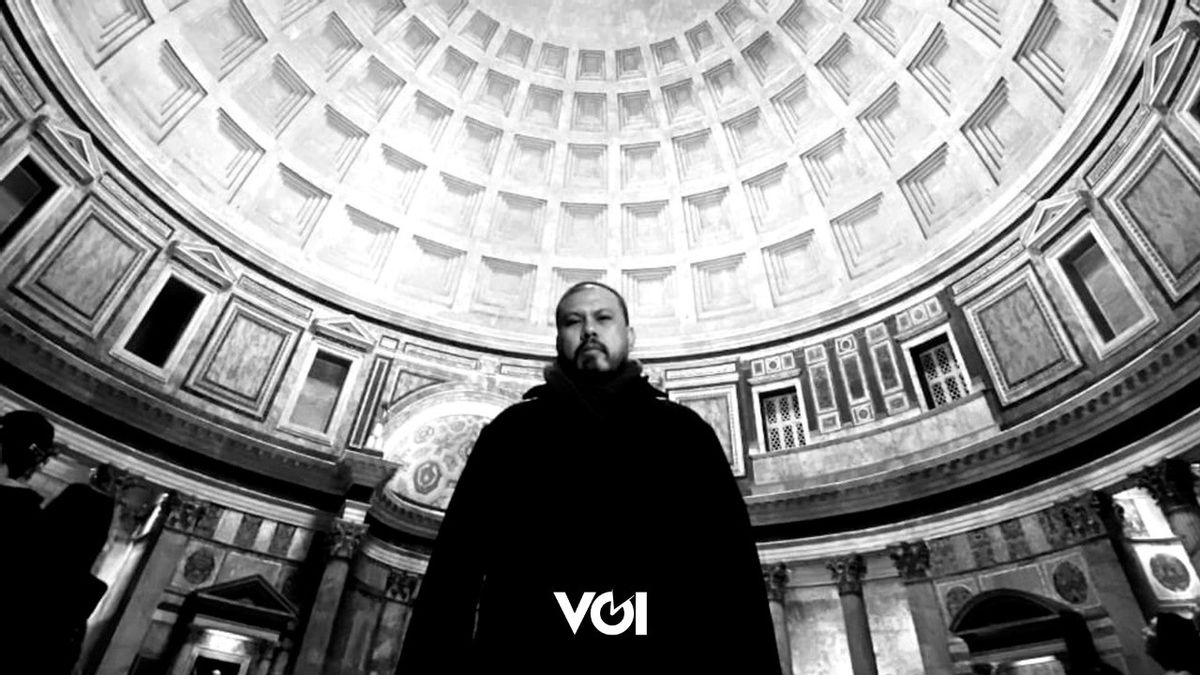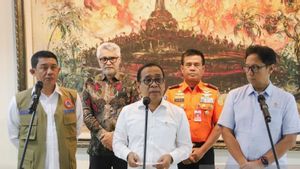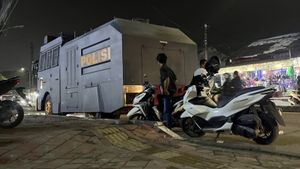JAKARTA - The COVID-19 pandemic affects all lines of life in Indonesia and around the world, including the Indonesian film industry. Joko Anwar sees that the changes will be very significant and even the impact will still be felt in the future after the pandemic can be overcome.
"The impact of the pandemic on filmmakers is like other industries in Indonesia and the world. Every year we usually release 140-150 titles, last year we only released less than 60 titles in 2020. We lost 76% of ticket sales. In 2018-2019 we sold 51 million tickets per year, in 2020 we decreased to 76 percent", said Joko during a virtual interview with VOI Saturday, January 30.
Economically, the pandemic has clearly hit the source of income of filmmakers. Especially in the early days of adaptation to the pandemic, all activities were stopped.
"If production decreases, filmmakers' income will also decrease because jobs are reduced. Now, there are many filmmakers who have changed their profession to become a culinary business who are doing other things", he explained.
As time goes by, filming began to resume. Even so, the adjustment of filming made the production costs during the pandemic even greater.

At the end of 2019, the stretching of filming increased again after producers got used to the film distribution pattern through OTT. However, filming in the pandemic era was never the same as shooting in the past.
"The challenge of filming during a pandemic is that we have to follow standard health protocols, wearing masks, keeping your distance, and wash your hands regularly. Because the shooting hours are not fixed, we are now afraid of being tired, and then our immunity decreases, so we reduce it from 18 hours to 10-12 hours", he said.
Mathematically, the reduced shooting time will make the shooting time longer. "Shooting days increase and the production costs also increase. Besides, we have to prepare our procedures for health protocols. Shooting hours, production costs, production time, and of course filming with very careful precautions", said Joko.
Shooting locations are also limited, so filmmakers have to be good at tricking it. "It used to be possible in the alleys in residential areas, now you can't because you don't want to create a hassle that puts you at risk of being exposed to the virus", he said.

According to Joko, the shift in films from cinema to OTT is getting stronger during the pandemic. "It is very understandable because even though the cinema is already operating, and it is limited to 25-50 percent. People are still afraid that some will not want it, so it is understandable that producers are looking for a safe mode of distribution, especially during a pandemic. This is very reasonable", he explained.
However, as a filmmaker, Joko admits that he is worried that the pandemic will change the style of viewers enjoying films. "The shift of the audience from the cinema to the OTT is really worrying because if we see the cinema, even though the capacity is only 25% or 50% so it is safe, it is still empty. Meanwhile, eating places, restaurants, cafes, hangout places are still busy. It has been established 20 years, it could have decreased because it is more comfortable and easier to watch at home via OTT. That is indeed something that I'm worried about right now", he explained.
There are challenges that will remain after the COVID-19 pandemic can be controlled. For example, in 2022, when the cinema is back to normal, the pandemic can be controlled, the cinema's capacity is 100%, the public is no longer worried about going to recreation areas including theaters, Joko is worried that the culture of watching at the cinema has been damaged.
"This can only be treated and can be overcome if Indonesian filmmakers produce films for the big screen that are worthy of striving for the audience to go to the cinema to watch", he explained.
The audience needs to be reassured to have an exciting viewing experience in the cinema, which cannot be replaced by OTT shows.
"So the films that are to be watched in the cinema must really provide a cinematic experience which when the audience watch them in the cinema, they give a different experience than watching on a small screen. This depends on how the filmmaker can provide these needs to the audience", said Joko Anwar.

Keeping up with the times, 8 films by Joko Anwar can also be watched on OTT. Not only in Indonesia, but Joko's films can also be enjoyed by fans around the world because the broadcasting rights are requested by OTT who screen his films abroad.
"All 8 of my films are in different OTT. Janji Joni and Kala are available on Disney Plus. The Forbidden Door, Modus Anomali (Ritual), A Copy of My Mind is on Netflix and Online Cinema. Satan's Slave is available on many OTTs. Gundala will also be broadcasted on Netflix, Impetigore is also on Goplay and Amazon Prime", he explained.
He admitted that he had not produced many films so far. "I make a film once a year or every two years. The films I make are always different, not just one genre", he said.
However, Joko did not deny that he likes the horror genre. "Because I grew up watching a lot of horror films. When I was a kid, 80% of the films I watched were horror. Because I watched films from the cinema, and at that time there were many horror films. Many people watch horror films, especially in the place where I grew up. So I watched horror films a lot", he explained.

The shift in distribution patterns, he continued, does not reduce the standard of film production that is applied by him. Each OTT has a different production pattern.
"Sometimes, film production for cinema and OTT are the same, and sometimes different. If you look at the OTT, there is also a large-scale production. It is the same as the big screen. There are also big screen films that have a small production value scale. So it's no different, though, the mode of distribution with the production process is the same", he said.
In production wise, Joko is sure that OTT also wants to provide the best for its audience. "Actually, all OTTs are the same, if they allocate sufficient budget with a large production value, technical and aesthetics can match the production of films that are usually enjoyed on the big screen in cinemas", he said.
Do foreign and local OTTs have a difference in quality? "It depends, usually, OTT gives a sufficient budget for a film, sometimes they also give a low budget. It doesn't depend on which OTT, but depends on the budget they provide for production", explained Joko Anwar.

So, despite the pandemic, Joko Anwar continued his film production process. "Bumi Langit Cinematic Universe is preparing two films, Sri Asih with Upi as the director and Virgo and the Sparking with Ody C. Harahap as the director. We are currently preparing them, because of the pandemic, we are experiencing production difficulties, so we do it slowly to be safe", he said.
Most recently, Bayu had leaked a film that was to be produced by Joko Anwar, entitled Remarkable Thing During A Killing. The fans immediately welcomed the leak with enthusiasm. Is it true that Joko is working on the film?
"My film Remarkable Things During A Killing is a film that I have been developing since 2016. So it's not a new film to work on. Because I usually write old scenarios, develop old stories, take a long time to prepare, so Remarkable Things During A Killing is a long project that I prepared with Aryo Bayu. I don't know when to begin the production. But this is a film that shouldn't be rushed to work on", he said.
Aryo Bayu is arguably Joko Anwar's regular actor. Until some thought that Joko always used the same actors when making new films.
"Actually, because these actors and actresses who play in my film have very strong characters, their presence is strong, their acting skills are strong, so they are very memorable in my films so that the audience will still remember, that's all. I think this is something normal", he said.
Joko explained that he actually never sets the cast when making films. "Usually 70% are new cast, we even look for the cast from filming locations who have never played in a film before. Some are religious teachers, there are online taxi/ojek drivers, we look for them, we hold an audition for them according to the character's interests", he concluded.
[/ read_more]
The English, Chinese, Japanese, Arabic, and French versions are automatically generated by the AI. So there may still be inaccuracies in translating, please always see Indonesian as our main language. (system supported by DigitalSiber.id)








